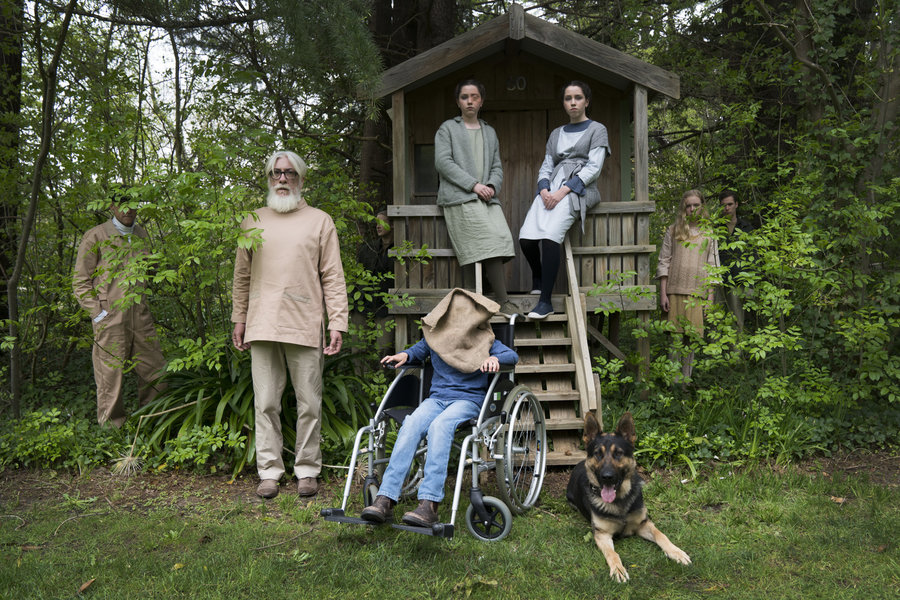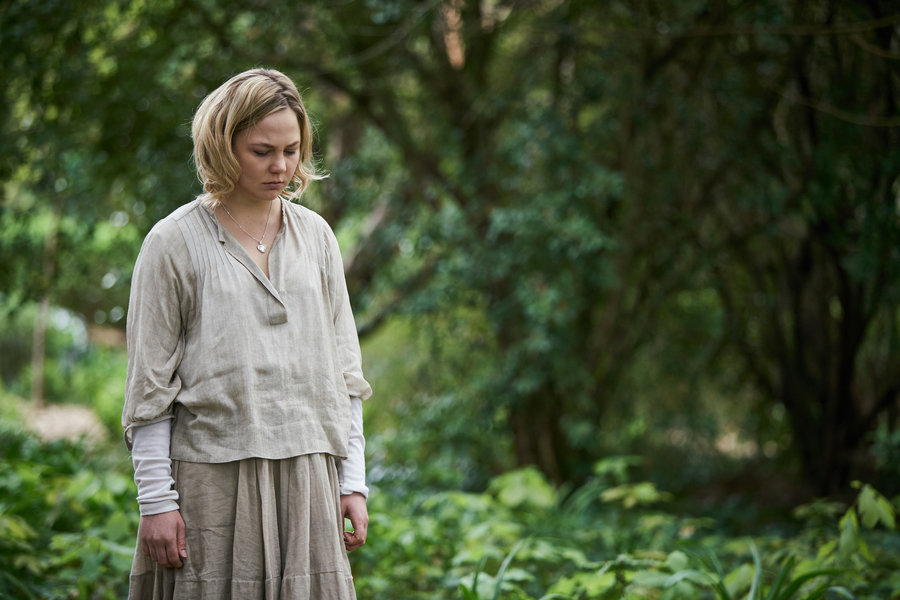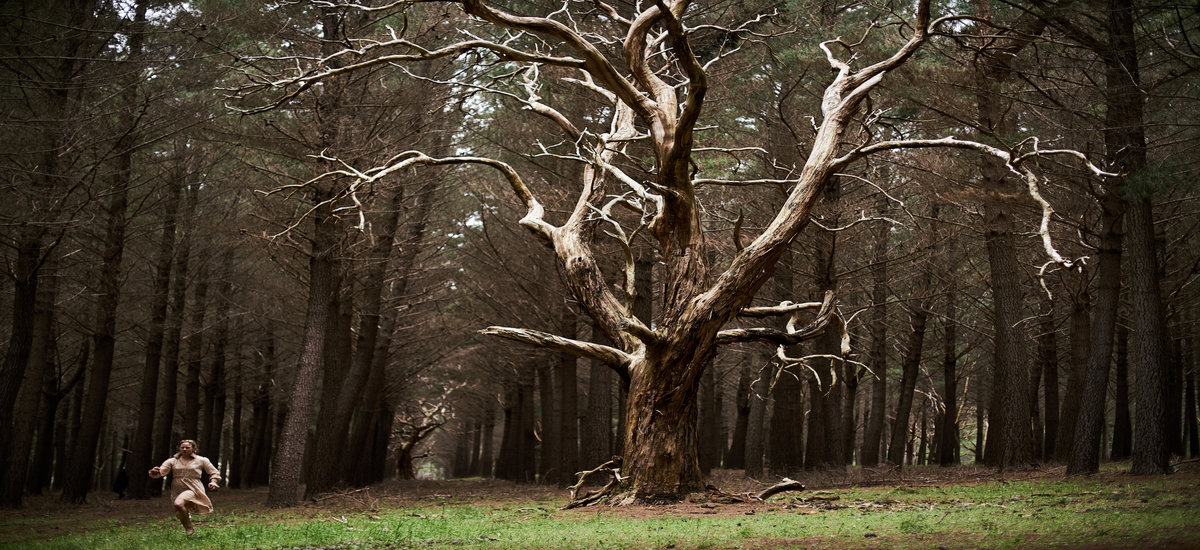It’s possible to create an atmosphere in a film thats simultaneously intoxicating and distant. The ability to string an audience along is usually forgivable, as long as the end result ends up being more than its individual party. For the most part Luke Shanahan’s debut Rabbit is captivating in its exploration of low-key, slightly other-worldly horror.
Maud (Adelaide Clemens) is a medical student studying abroad in Germany. She suffers from reoccurring nightmares she sees through her twin sister’s, Cleo, point-of-view. About a year prior Cleo went missing and everyone has started to move on in their grieving process, to the extent that her parents held a funeral, with wood instead of a body. Maud feels alone in her belief that he sister is still out there, the stress growing heavier on her shoulder as each person believes her less and less. Reaching a fever pitch and possibly feeling aftershocks of whatever her sister may have gone through, she collapses outside of school. As she moves back home to mentally recuperate, the echoes of her sister get stronger as things take a turn for the strange.

Shanahan and company build up tension through little details. Maud’s parents seem uneasy in her presence, not so much in the form of a reminder of their other daughter, but stunting the relative normalcy they’ve finally settled into. Also lurking around the house is Cleo’s fiance, Ralph (Alex Russell). Lending a hand to both the family and Maud, his intentions never seem to fully make sense. That different from Henry, a close friend and police officer who is on forced sabbatical after going over the edge while on Cleo’s case.
The bulk of the film’s journey is lead by Maud’s cryptophasia, or at least a variation of the phenomena, but hewing closer to ESP. She “dreams” of Cleo, the tumultuous situation she finds herself in and feels her sister is calling out for her to find her, leaving clues in her visions to steer her on. If only it were to simple to understand the exact intention or context they’re supposed to be viewed in. The trio of Maud, Ralph and Henry set off to follow the trail, unsure of if they’re heroes in a developing story, or merely pawns.
Though the story isn’t altogether the most interesting, there are plenty of things strewn about to keep a viewer focused or at least partially engaged by what’ they’re seeing. Anna Howard provides Rabbit with some truly beautiful cinematography, that shifts between claustrophobic rooms and sweeping vistas. She fills each corner of the screen with little secrets, causing confusion in a rather sedate landscape.
Since this is a mood piece more than anything else, the score too plays a big part. Michael Darren makes it land in a big way. Stretches of silence give way to screeching stings and a rumble that’s shakes the world. It adds to the eerie and off setting, more than the dialogue laid over it.

If you plan to make a film whose meaning is held just out of the audience reach the whole time, you better have one hell of an ending. Unfortunately, in Rabbit’s case, even when it lays all the cards it in the table, you’d still need a form of decoder ring to totally get it. You can understand their intention, but the fact that it doesn’t seem to have much substance is the sign of an inexperienced filmmaker.
Rabbit has the majority of elements to make for a semi-engaging film. Come for the music, cinematography and extras from some David Lynch movie that was never made. Stay and try to figure out an ending that is only half-baked. Don’t over do it though, as there are plenty of better films to spend your time pondering over.



